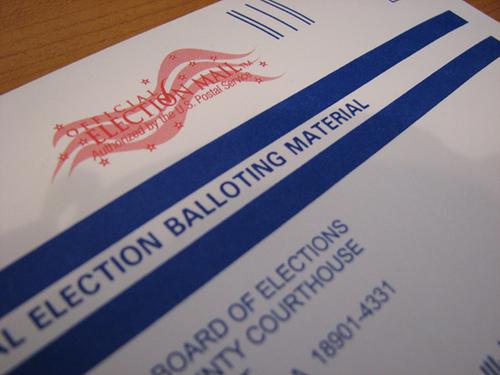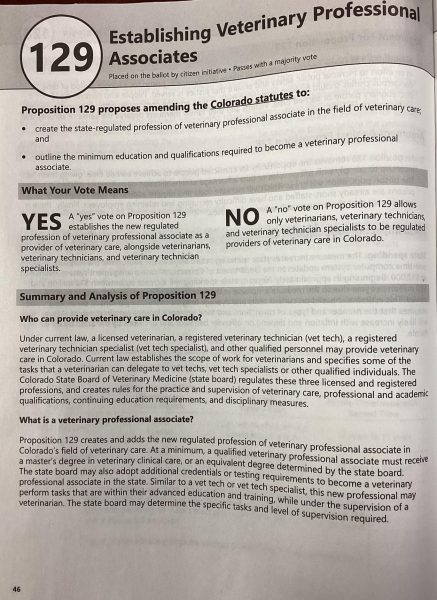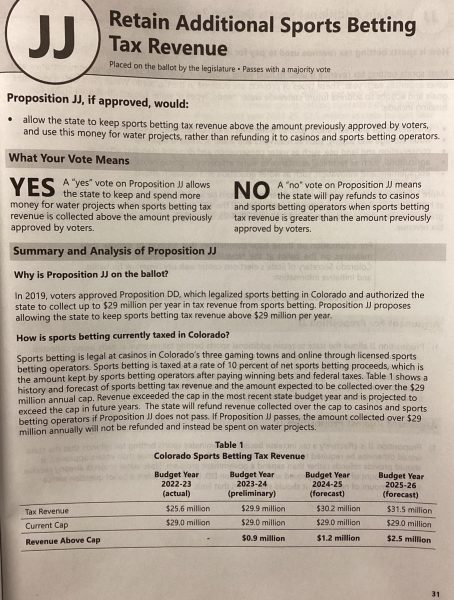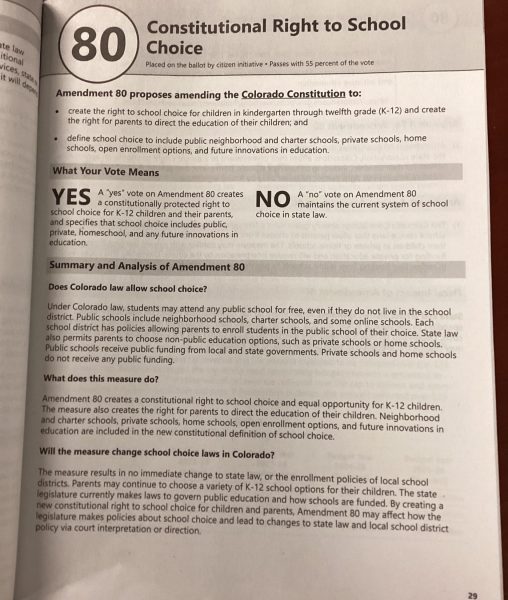Op-Ed: You NEED To Vote But It Doesn’t Have To Be For Either Major Candidate

You should vote.
Plain and simple, you should vote. It is a right afforded to us by the very country we live in, and you should exercise that right as often as possible.
But of course, not everyone does. In fact, a large percentage of the population willingly does not.
Fun fact: approximately 93 million registered voters did not vote in the 2012 election between Barack Obama and Mitt Romney. Compare this to the 126 million who did vote, and one can see that non-voters have a much larger numerical impact than they believe. The problem is that those 93 million non-voters had the collective power to sway the election in pretty much any direction they chose (if they all worked in cohesion, which we all know doesn’t happen). The impact of not voting cannot be ignored.
And the reasons (or excuses, depending on who you ask) given for not voting are about as varied as the matters we are voting for in the first place: voting booths are too far away, no candidates reflect our values, voting is too hard, too much of a nuisance, more hassle than necessary, that our voices do not actually matter, that our votes do not count, that our elections are already decided before we even vote, etc etc etc. There’s no real end to the reasons given for not voting.
But here’s the problem: if the people who purposely decide to not vote actually voted, the results of our elections at every level would look radically different. You see, we’re letting a non-representative number of voters and electors represent our interests and voice. We complain endlessly about not being heard or politicians not matching our values. But you chose not to vote, thus deliberately silencing yourself and essentially ensuring your voice is effectively not heard. How can one complain about a system they refuse to do anything about?
It borders on hypocrisy and laziness.
Of course, this article only addresses those citizens who have the ability to vote and willingly choose not to. This article does not focus on those citizens who are disenfranchised, systematically intimidated from voting, or who are unable to vote due to our various “Voter I.D.” laws.
When we break an arm, do we just stare and complain and point out every reason why our arm won’t get better without ever going to a doctor? Do we make excuses like “oh, no advertised doctors represent my health values, so I’m not going to see one” or “getting a cast is too inconvenient”? Or do we say we’re protesting the health system by not seeing the doctor? Because if that’s the case, all we’re really doing is allowing ourselves to continue to hurt without ever doing anything to fix the problem. And like a broken arm, our broken system will not be fixed by simply not participating in it, or by constantly complaining about it without doing something about it.
If the system is to be fixed and to be truly representative of everyone’s voice, perhaps everyone should actually make their voice heard. The best way to have that happen is to vote. I would usually say protest is the best way to make a voice heard, but in this specific case, we are paradoxically choosing to remain silent in an effort to be heard, and it’s failing. Not voting as a form of protest is systemically ignored. I’m sorry, but making no noise at all is probably the least effective way to make a voice heard. As the site VotingCounts puts it: “Voting isn’t the only way you can have influence over politics. But it is the easiest. Make sure you vote.”
But there is an option to have your voice heard without compromising your ideals by voting for a candidate you disagree with: blank voting or null voting. Voting blank or NONE is one of the more effective and powerful tools available to the voter. By intentionally leaving a ballot option blank, the ballot has to be counted. All votes are counted, recorded, then announced, including ballots that were left blank or ‘spoiled’.
The blank or null vote is vastly important to those of us who are tired of non-representative politics. As Chiara Superti, lecturer in political science and Director of the M.A. program at Columbia University, so aptly puts it: “Indeed, the BNV [blank/null vote] is shown to be the tool of the vanguard of discontented citizens.”
The reason this voting option has so much potential behind it is that it demonstrably shows a clear dissension from the current political process. Blank voting, or voting NONE, also counters the notion of voter apathy. While it is true that voter apathy exists and is a significant problem for a constitutional republic, it is also true that if the overwhelming amount of people who do not favor any potential candidate voted blank or NONE, the election results would be effectively different.
Unfortunately, there is no official ballot space that allows for a NONE or blank option, so it is up to the voter to do this. It is a direct, visible protest that cannot be overtly ignored or attributed to voter apathy or education. By presenting the blank/ null ballot as a form of protest, we are ensuring that we are heard and not ignored.







Austin Kelley • Dec 5, 2016 at 6:29 pm
Dear Scott,
When i click on the pinnacle from ACC Home Page i was exploring the different articles and while i was scanning through it i saw you’re really cool famous article about this election for the next president of the United States of America. So when i click on yours i was reading it and after i was done reading it talk about a lot of very good main points about this election between Barack Obama and Mitt Romney in the year of 2008 – 2012. First of all, when Barack Obama (Democrat) beat Mitt Romney (Republican) he was the very first African American President to took office in the white house in our nation’s capital in Washington D.C. on the east side of the United States. Additionally, when this election for the whole nation was still counting the electoral votes for each state that the different presidents visited for people to vote for approximately over 93 million registered voters did not vote, 126 million who did vote, and 93 million non-voters had the collective power to sway in this election between the two different political parties.
Second, the impact of voting on a paper or on a computer or mailing it cannot be ignored because you only have one time, and one chance to elected a new president. Also, the reasons are having lots of different places for lots of voting booths that are close for people to drive to not having them too far away, having no candidates reflect our different point of views, being very tired/listening from August 1 to November 8 and having voting being too hard about who to believe which president is going to fix our country up from being in too many issues including around the world.
Third, i agree that if one person or more complain in each 50 states in the United States of America about the system they are refusing to do anything about because of how the results are going to be very effected between the Republican party or the Democratic party to take charge of the White House and dealing with how Congress is going to improve their very own people of how to do a better job for any issue is out here. In Conclusion, your article named “You need to vote but it doesn’t have to be for either major candidate” was very interesting to read about this election. So my question to you Scott is what amazing articles are you going to write next time?
Sincerely, Austin Kelley and please write back
Scott Bright • Dec 6, 2016 at 3:04 pm
Hey Austin,
So, I’m a little unclear as to what your point was in the first paragraph? Could you please clarify?
Second, while I don’t disagree that we get one chance to vote, I’m wondering what you mean with this? Can I get another clarification, please?
Third, yes. If more people protest in each of the states and exercise their First Amendment rights, then maybe those in power will stop turning a deaf ear.
Most of what I’m going to write next are reflections for the year, sort of a round-up of what I’ve done and hopefully plan to do in the future. I wish to write way more about sex and relationships and such, but so many other topics pulled me into them that I wasn’t able to get as much content as I wanted out there. As much as I love writing about all kinds of things, I really want to write about sex and the various caveats of sex for us silly humans. Thank you for your comment though!
Kevin C. Moore • Nov 4, 2016 at 6:03 am
A great column!
– Kevin Moore, BlankBallot.org
Scott Bright • Nov 4, 2016 at 1:54 pm
Thank you!
Austin Kelley • Dec 5, 2016 at 6:32 pm
@Scott Bright, hey Scott i wrote you a letter about your article for a comment so please write back austin kelley